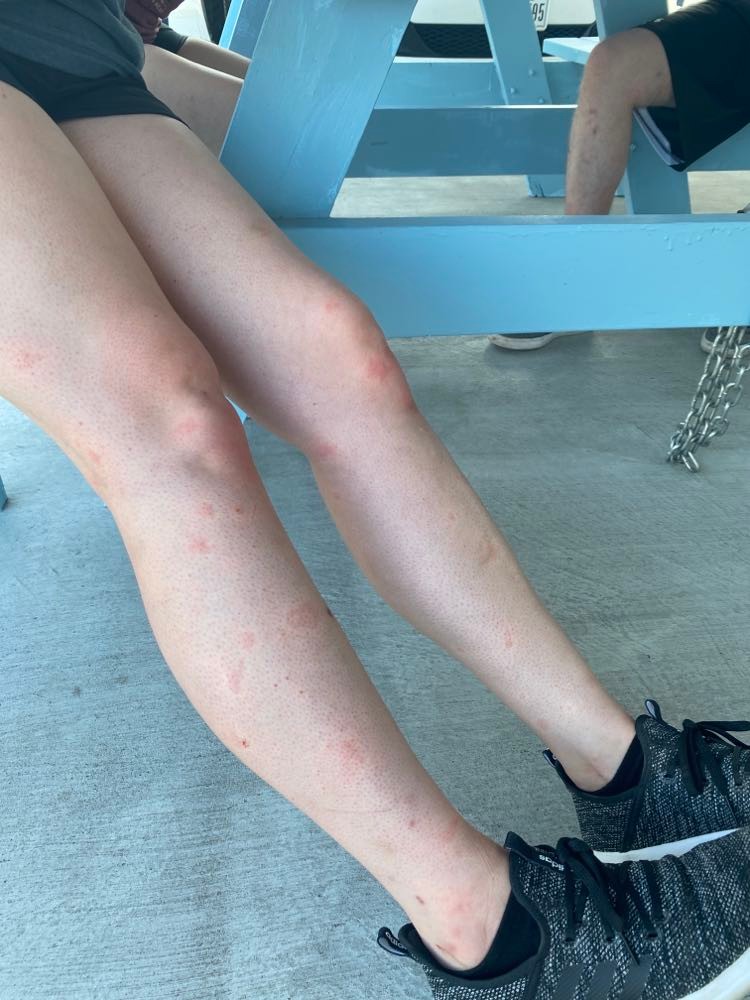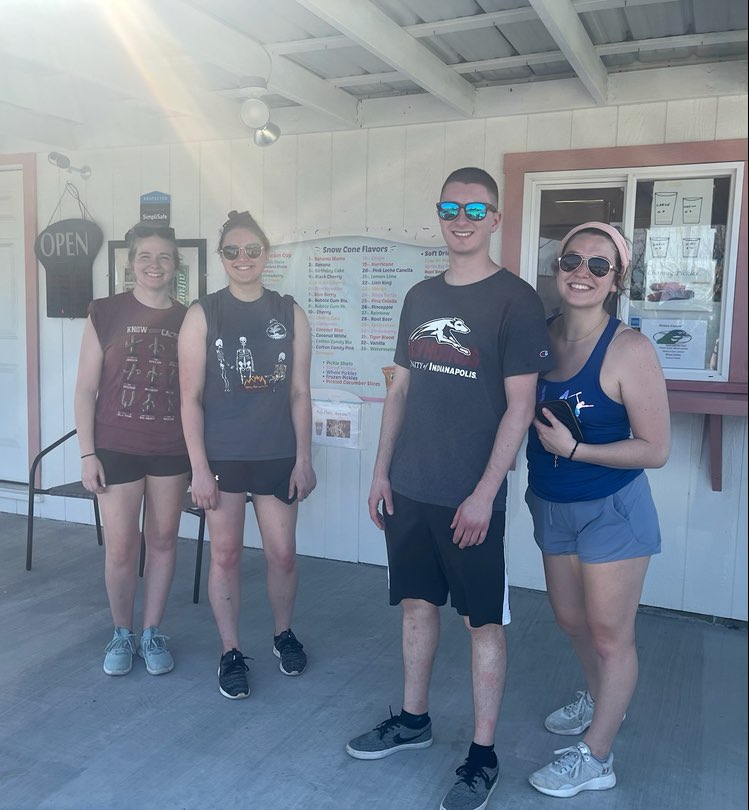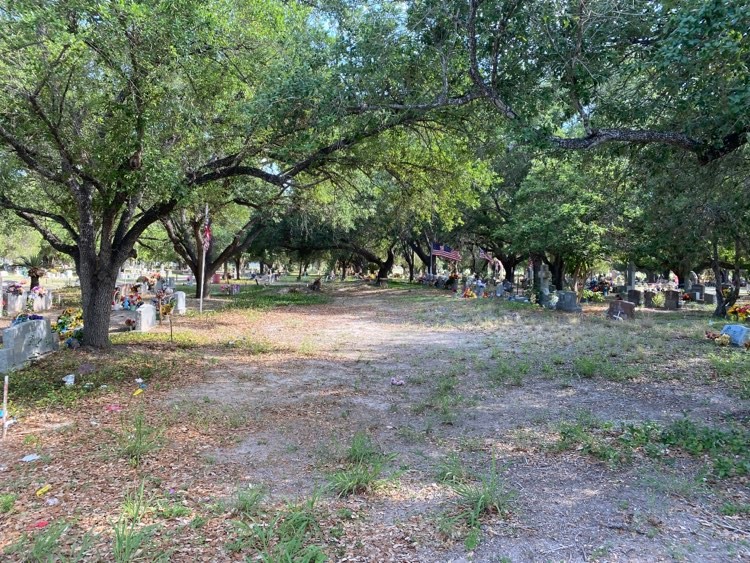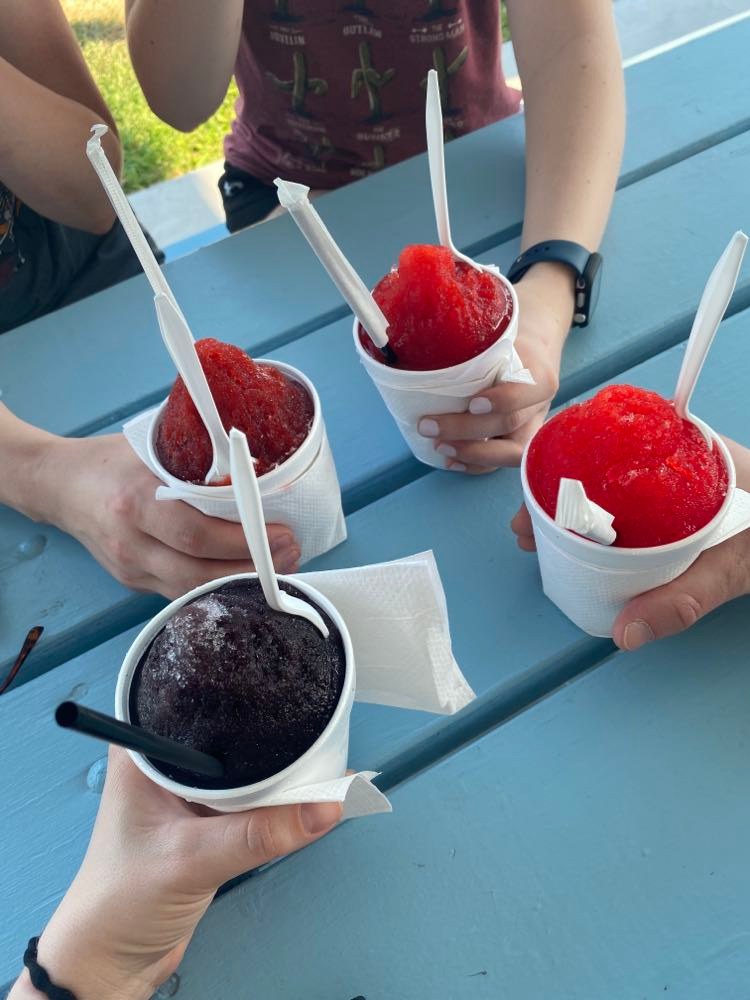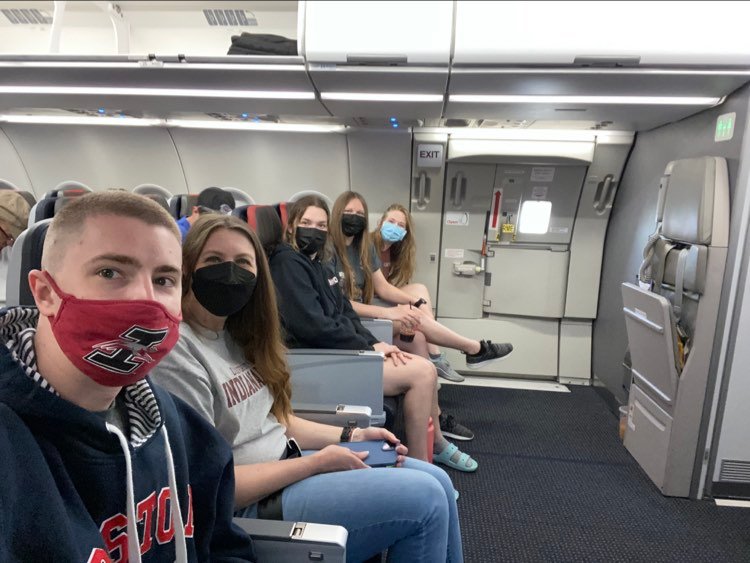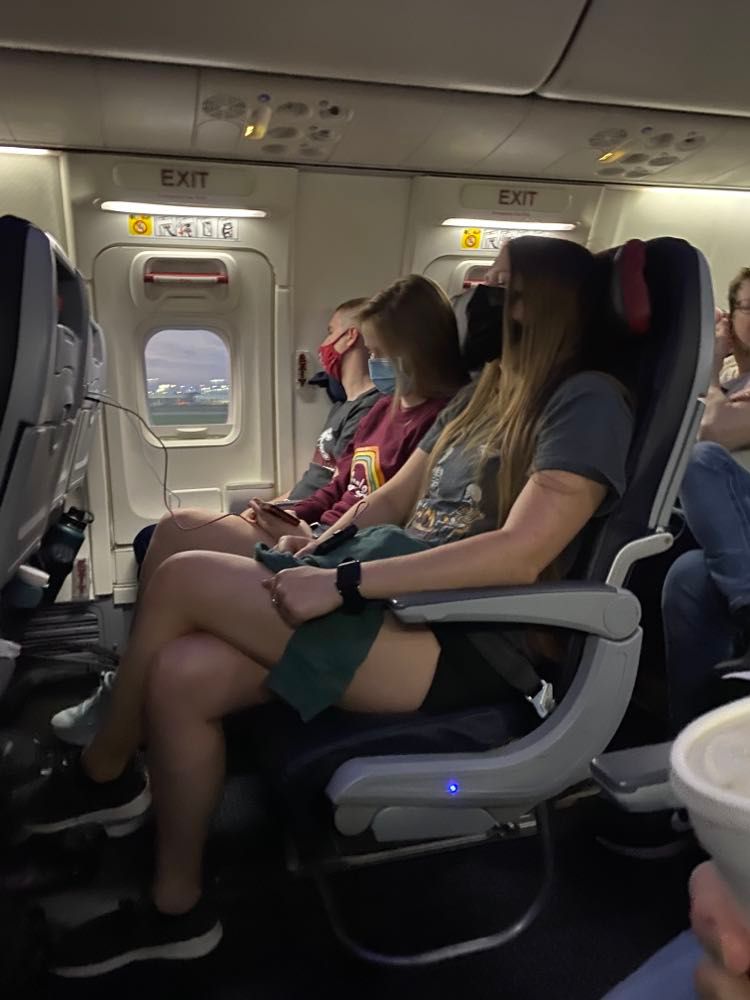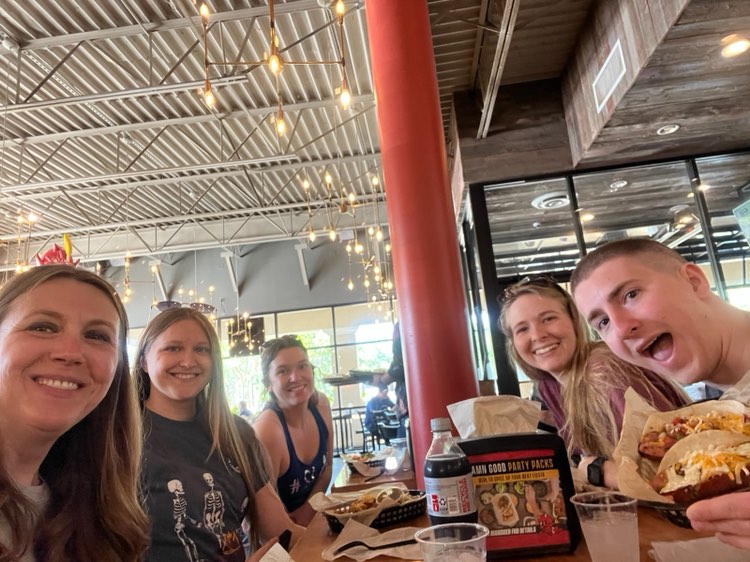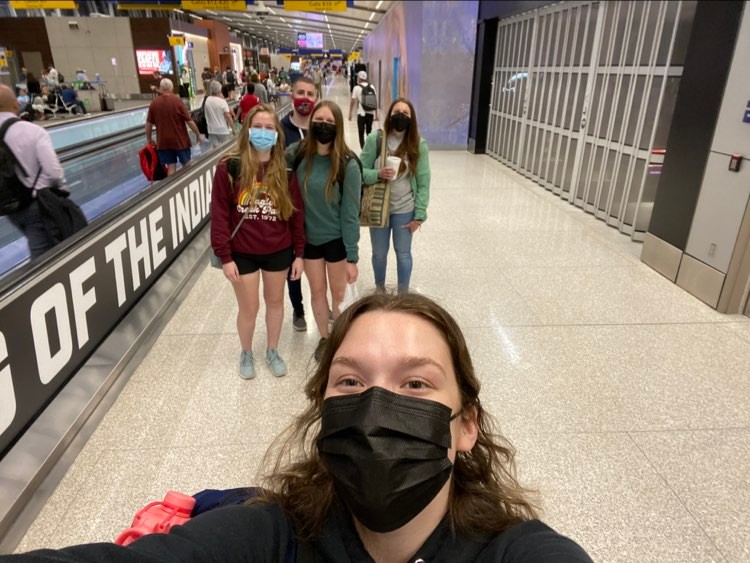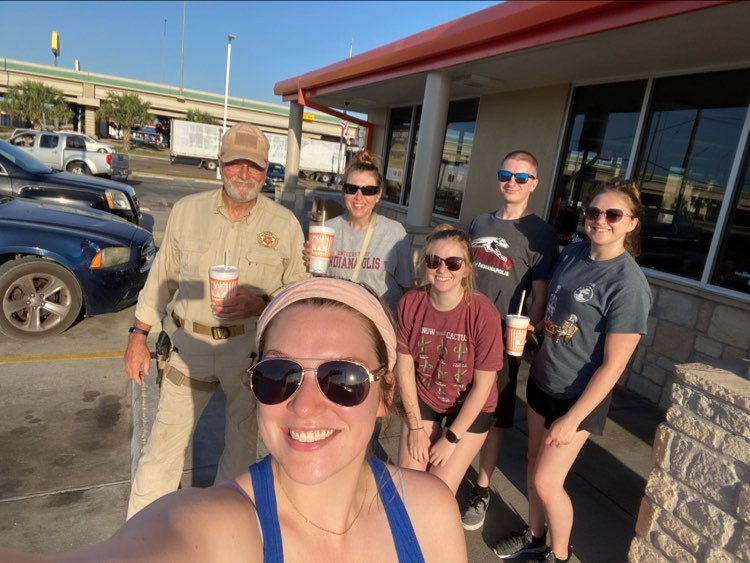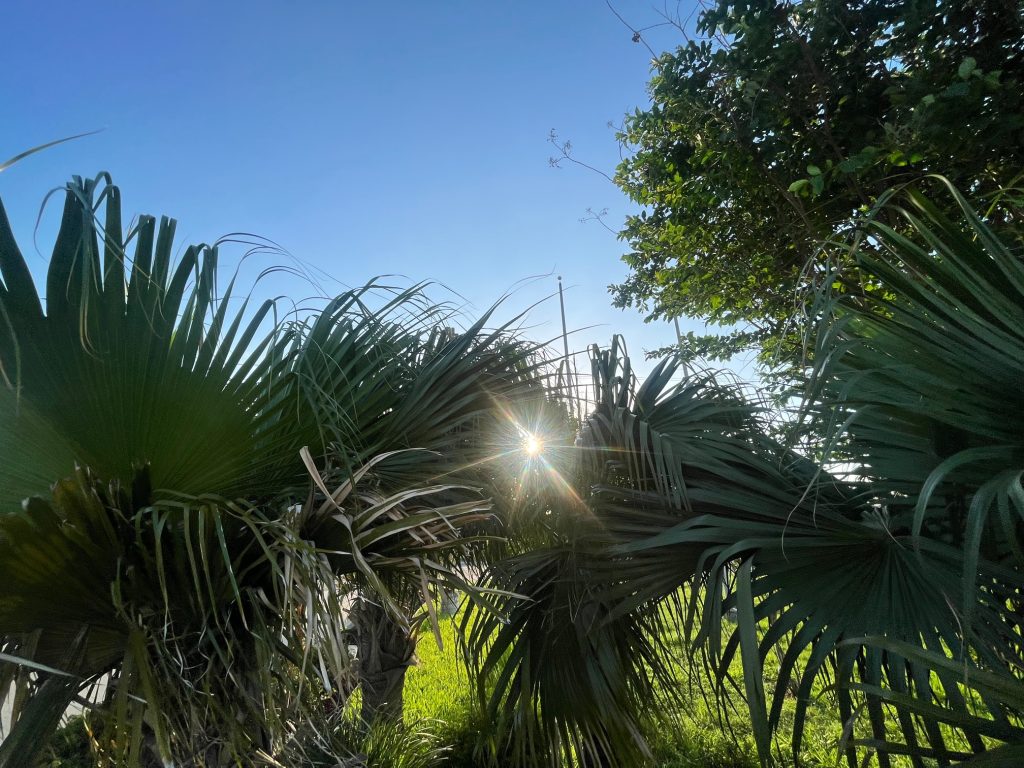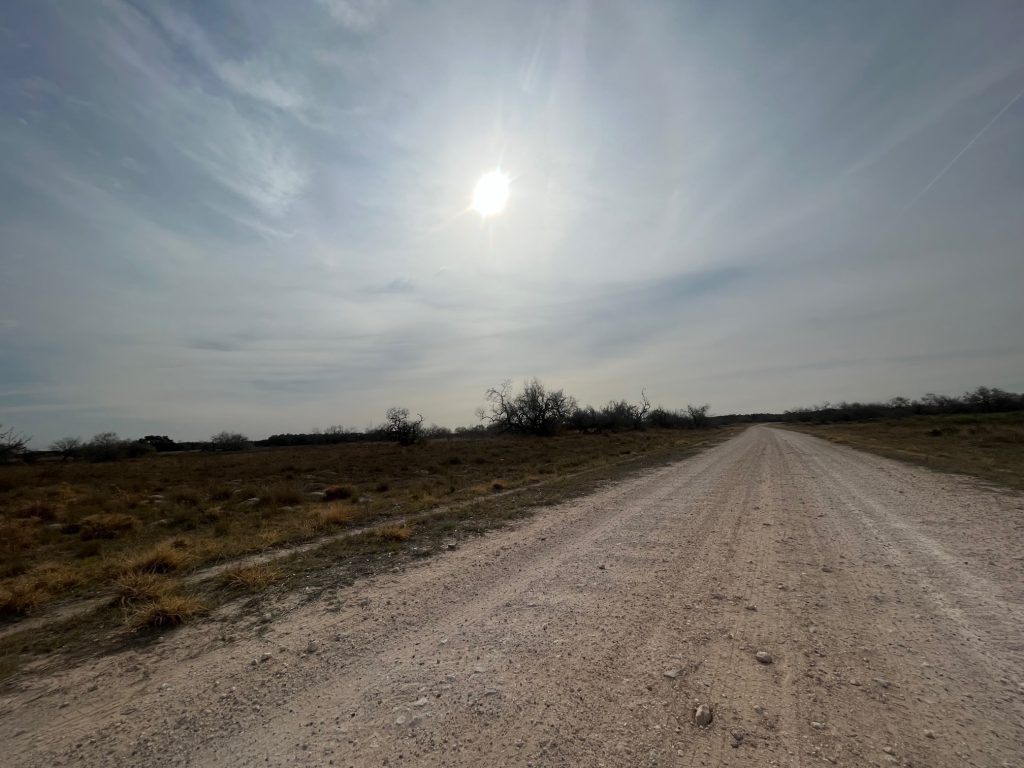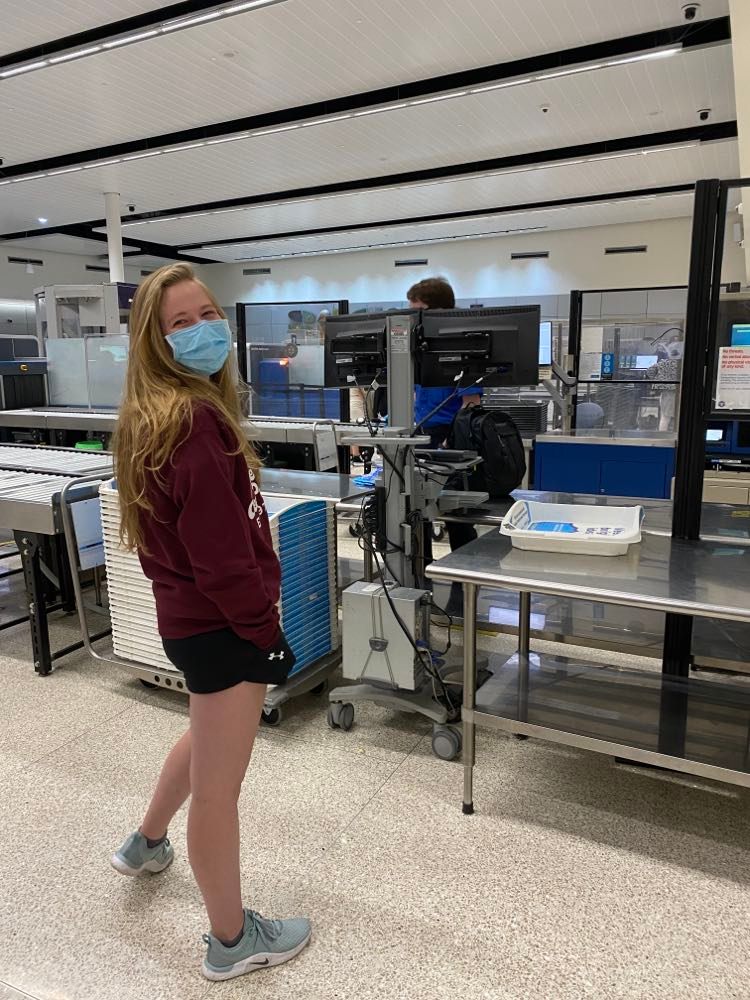
Bright and early at the airport for a 4:30 am meeting time. We got our boarding passes and headed for the TSA line, and things got a bit… bumpy from there. Dr. Latham was the only one to get through with no issues. I had to go through a different scanner and have my bag searched. Austin had to have his bag searched. Olivia and Jordan both had their bags pulled and searched as well. Their only find was Olivia’s extensive stash of candy, which of course was clean after they swabbed it and tested it.
After that, things calmed down, thankfully. Our flight from Indianapolis to Dallas was smooth. I got to discuss some of the politics of our work and just general chit-chat with Dr. Latham, while Austin and Jordan slept and Olivia wished she was asleep. We got to sit in the exit rows with extra leg room on both flights. From Dallas to San Antonio, we got to meet an amazing flight attendant, Jess. He was so kind and gave us the scoop on some lesser known perks of flying. We had a great time with him, and I honestly hope he is our flight attendant on the way back. It was a unique seating situation to say the least, but I’d be lying if I said he didn’t sway me to considering flight attendant as a career.

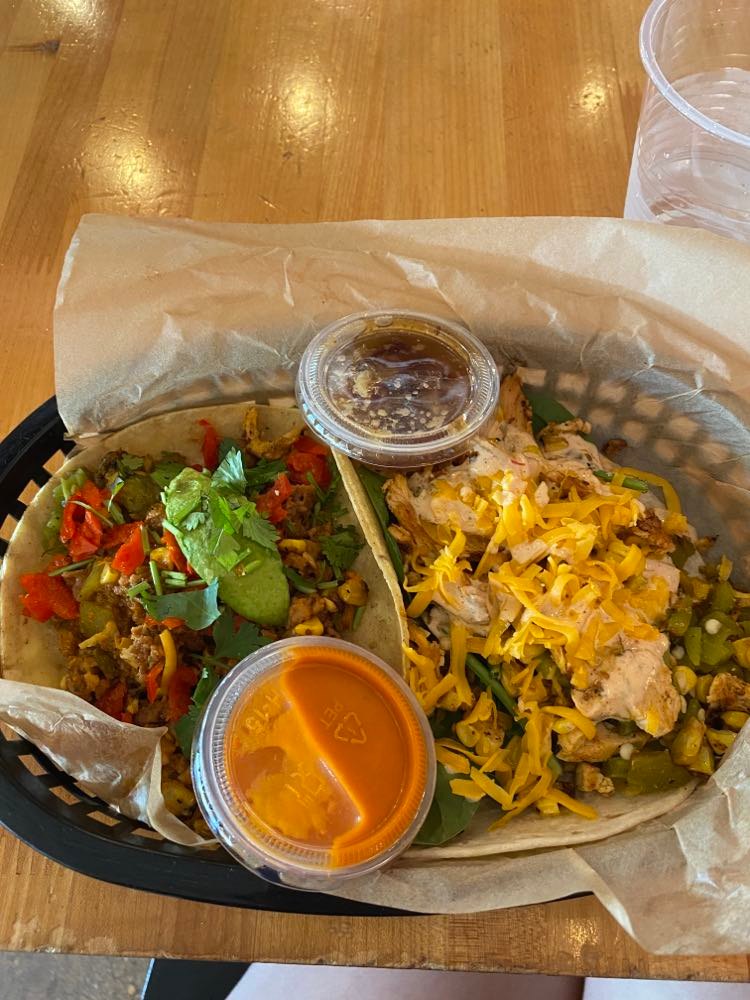
Once we arrived in San Antonio, we got to our new rental van (name tbd) and set off for Torchy’s Tacos. I have heard stories on stories about how good their food is, so I was happy to finally put it to the test. I got the tipsy chick and the mofaux and yalllllllllllllllllll (southern for oh my goodness) it was SO good. Everyone cleared their plates, which if you know some of us personally, you know how big of a deal that is.
After our meal, we left for Falfurrias. Shotgun always stays awake with Dr. Latham, so as we drove, we listened to the new Texas playlist and chatted. The Texas scenery changed from downtown to ranches, cacti, and cows. Some of us nodded off, but the drive went by quickly! Starting to see the same environment I experienced in January made it all feel real again, and I am so ready to get to work tomorrow.
We checked into our hotel, rested for a bit while watching Spongebob, ran to the grocery store for essentials, and then headed to the county cemetery. Dr. Latham took us on a tour of where our team has worked in the past. To learn that they have uncovered over 120 unidentified migrants over about four different years was shocking. In areas that just look like small, open spaces. Latin cultures honor their passed family members, and that was shown immensely in the care taken by family members to the resting places of their loved ones. It emphasized to me the importance of getting these unidentified individuals back to their loved ones.
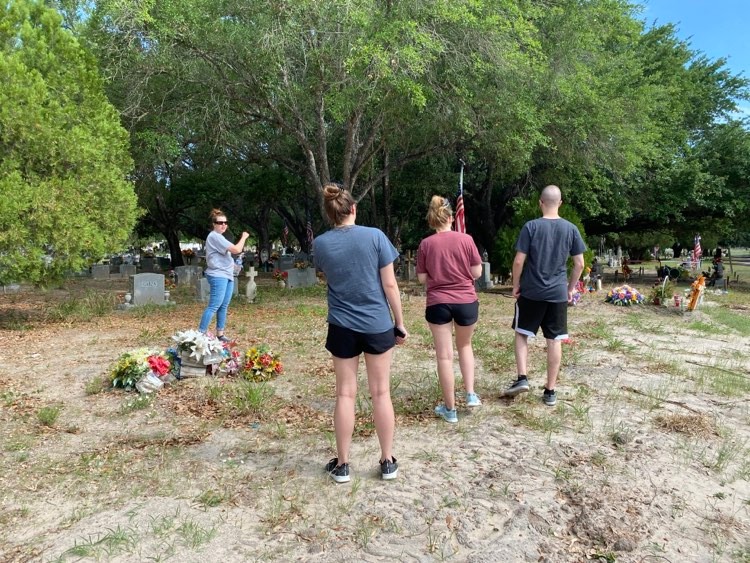
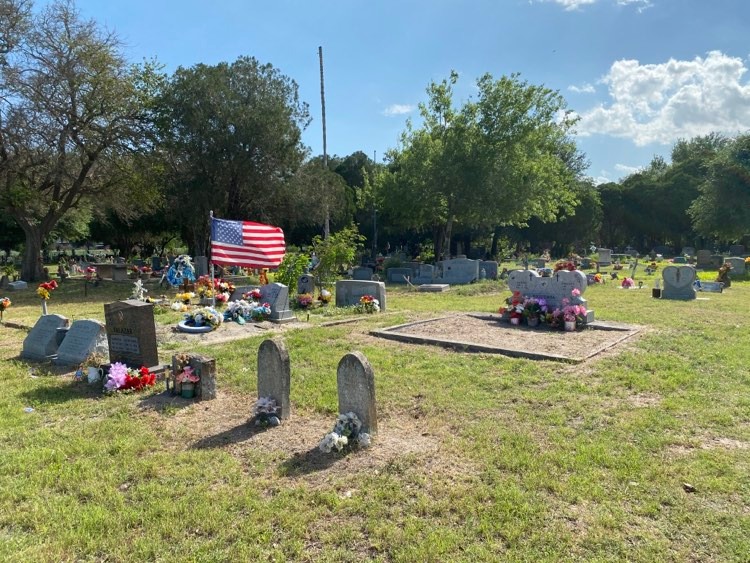
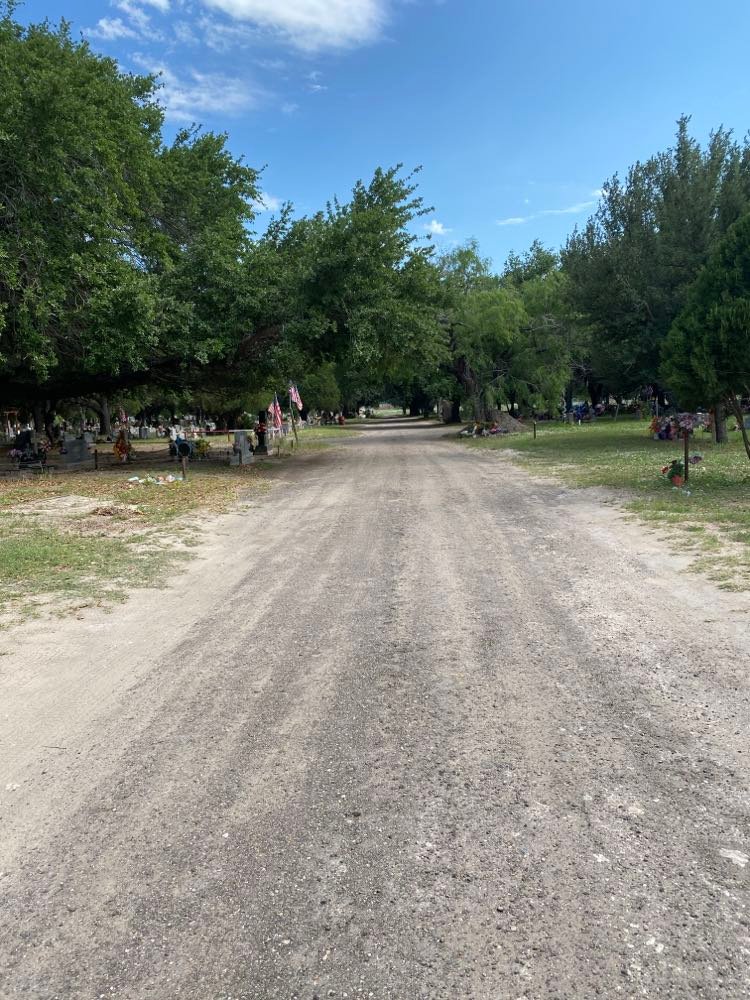
As our team learned more, a familiar face met us there. It was so good to see Deputy Don White again. It feels like we were just here and are now picking up where we left off. We caught up for a bit then went for snowballs. The rest of my team will all say snow cones, but I have always said snowballs. From snowballs, we went to whataburger and discussed our tentative plans.
Today was pretty low pace compared to the days ahead. We finished out today with our first debriefing, where some of us were already feeling the weight of the meals. We talked about what to have in our personal field bags, what to expect in the upcoming days, and some jobs we needed to take responsibility for, such as the walkie-talkies and camera. I am honestly nervous about the upcoming days with the heat. The high tomorrow is 98 degrees. We will have to be very aware of each other and watch for any signs of fatigue. Regardless, it is so good to be back. Tomorrow morning we will have our safety debriefing before we start our search, and then the ball will be rolling for the rest of the week.
Send us cool thoughts!
–Izzy
